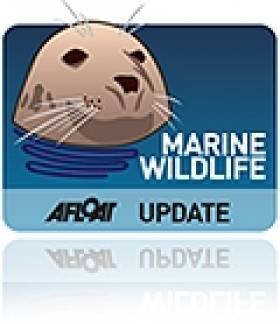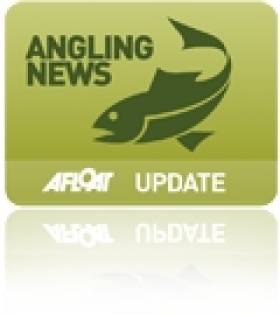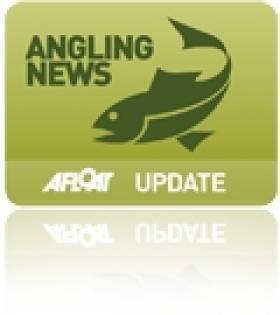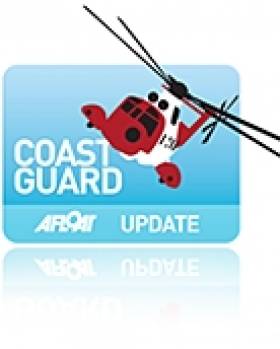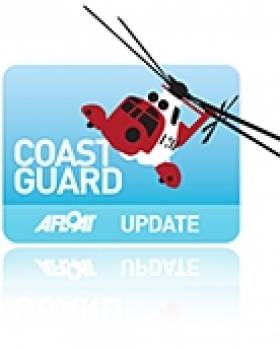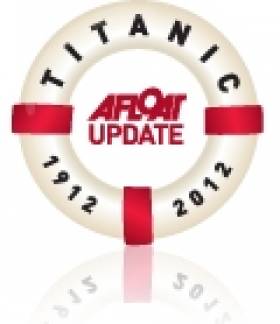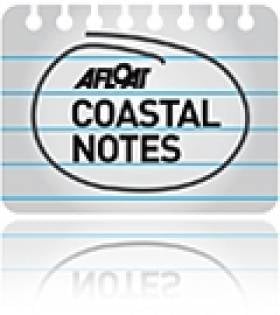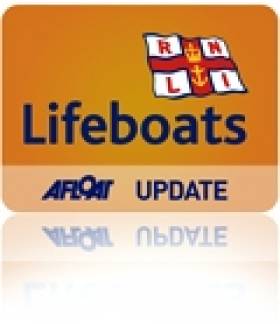Displaying items by tag: Northern Ireland
RNLI Answers More Than 400 Calls in NI in 2012
#RNLI - Lifeboats in Northern Ireland launched 255 times to a variety of call-outs in 2012 in a year that saw the institution's lifeboats and lifeguards answer 413 calls for help.
RNLI search and rescue operations saw 236 people brought safely to shore throughout the year by the nine volunteer lifeboat crews located across the region.
The annual statistics released by the charity today (22 January) show that of the figures, 111 services took place in darkness while crews collectively spent 2,193 service hours at sea.
Bangor was the busiest lifeboat station in Northern Ireland last year, launching to 53 requests for help with the crew rescuing 53 people off the Co Down coast.
Enniskillen, which operates two bases on Upper and Lower Lough Erne in Co Fermanagh and which is the North’s only inland RNLI station, launched 46 times and brought 50 people to safety.
Meanwhile, Portrush RNLI in Co Antrim launched 33 times and rescued 33 people.
It was also a busy year for the 10 RNLI lifeguard units located on beaches in Co Down and along the Causeway Coast, where lifeguards responded to 158 incidents and assisted 176 people who found themselves in difficulty.
The Causeway Coast, where there are seven units located, was the busiest area, with Portrush East lifeguards responding to 31 incidents and assisting 35 people. The Benone unit attended 30 incidents and assisted 30 people while the Portrush West unit responded to 25 incidents and assisted 32 people.
Overall in Ireland, RNLI lifeboats launched 939 times with the volunteer crews across the 44 stations rescuing 1,041 people. Dun Laoghaire was the busiest lifeboat station in the Republic in 2012, responding to 46 call-outs throughout the year and rescuing 76 people.
Commenting on the 2012 statistics for Northern Ireland, RNLI operations manager Martyn Smith said: "The RNLI lifeguard service has expanded to 10 beaches in Northern Ireland and with the support of the local authorities they have an active and welcome presence on many beaches.
"They do not just saves lives and assist those in trouble in the sea, but also provide information, advice and first aid when needed, ensuring many potential incidents are prevented.
"I would like to say a huge thank-you to all those who support the RNLI, a charity dependent on the generosity of the public, whether by giving up their time or by making a donation."
Black Swan Bedazzles Birdwatchers in Belfast
#BlackSwan - A rare black swan has been spotted in the wild making its home in Northern Ireland, as BBC News reports.
The species, which is native to Australia, has never before been seen in the wild on this island. But a female black swan has recently been seen at the Waterworks public park in north Belfast, astounding local bird enthusiasts.
The bird is presumed to be an escapee from a private waterfowl collection, but as local 'twitcher' Aidan Crean enthused, she's a more than welcome addition to Belfast's urban wildlife.
"We have coots, moor hen, mallards, about 100 black headed gulls that have come in from Belfast Lough, a couple of mute swans and in the middle of it all an amazing black swan, pure black with a red bill," he said.
BBC News has much more on the story HERE.
NI Community Rallies to Angling Charity's Aid
#Angling - BBC News reports that the Northern Ireland angling charity that lost equipment after their storage facility was burgled has received an "outpouring of generosity" from the local community.
As previously reported on Afloat.ie, the storage container used by Angling First outside Dromore in Co Down was found forced open last Wednesday.
Sixty fishing rods and other equipment worth more than £600 (€745) were taken in the theft.
But the Northern Ireland community has since rallied to the charity's aid - with Sport Minister Carál Ní Chuilín presenting a number of fishing rods seized in raids on illegal fishing, and the David Prentice car dealership in Portadown donating funds to cover the cost of replacing the stolen gear.
"I'm now standing here today and I'm able to continue thanks to people like David Prentice and the minister intervening," said Angling First's Mark McGivern.
RYA Volunteer Awards for Belfast Lough Sailors
#RYAAwards - Two sailors from Northern Ireland have received awards from the Royal Yachting Association for their voluntary work, as the Carrickfergus Times reports.
Belfast Lough locals Sheela Lewis from Whitehead received Karl Blythe from Carrickfergus were among 56 people commended by Britain's Princess Royal at the RYA Volunteer Awards in London recently.
Lewis, the first female commodore of the County Antrim Yacht Club, was presented with the Lifetime Commitment Award for her hard work in developing the small club's sailing courses.
And Blythe was nominated by Belfast Lough Sailability for the Youth Award for his dedication to helping others get into sailing and promoting the club online, even while facing the challenges of his autism spectrum disorder.
“I really enjoy helping out with Belfast Lough Sailability and don’t think I do anything more special than any other volunteer," said the 19-year-old. "I really enjoy getting involved, not only with the sailing and on-the-water activities but also helping behind the scenes."
Rods Stolen from NI Angling Charity
#Angling - Sixty fishing rods were among items taken in a break-in at an angling charity's storage facility in Co Down, as BBC News reports.
Angling First - which says it has taught fishing skills to 2,000 children from disadvantaged areas across Northern Ireland - discovered the theft on Wednesday morning.
The shipping container outside Dromore where the charity keeps its equipment was found forced open, and items worth more than £600 (€745) were stolen.
In a statement, the PSNI said that the burglary occurred some time between Sunday 2 and Wednesday 5 December.
The charity's Mark McGivern told BBC News: "It makes you feel sick, it's probably been someone who has come to our pond, but they won't deter me from continuing."
'Early Closure' of Clyde Coastguard Surprises Campaigners
#COASTGUARD - Campaigners for the Clyde coastguard station in western Scotland have suffered a blow with the news that all calls are now being routed to Stornoway and Belfast as of last night.
BBC News reports on a document leaked to the Coastguard SOS Campaign, which outlines that while the Clyde station itself is scheduled to close on 18 December, control of aerials (ie helicopter dispatches) to the stations at Stornoway and Belfast was on schedule to be completed by yesterday evening (Friday 16 November).
Campaigner Dennis O'Connor said this move meant that "Clyde will cease to exist operationally" from last night.
He also described it as a "direct challenge" to concerns from the Transport Select Committee in Westminster that the closure programme had started early with the closure of Forth coastguard in September "despite assurances that the replacement system of operation would be fully tested before any closures took place".
However, a spokesperson for the Maritime and Coastguard Agency said that the handover period "has been planned for some time. All the staff have been informed well in advance."
As previously reported on Afloat.ie, the scrapping of the Clyde control centre at Greenock will see the loss of 31 jobs, with much of its role being taken up by the Belfast coastguard at Bangor across the North Channel - a change to the original plan for Scottish stations to share the load till 2015.
MLA Seeks NI Minister's Support for Malin Head Coastguard
#COASTGUARD - An MLA for East Londonderry has sought the support of Northern Ireland's Minister of State to protect the Irish Coast Guard station at Malin Head from closure.
Inishowen News reports that the SDLP's John Dallat MLA contacted Mike Penning regarding the threat looming over the Donegal coastguard station, which is the most northerly on the island of Ireland.
Dallat said: “When Mike Penning was Minister for Transport in Westminster he was instrumental in keeping the coastguard station at Bangor, Co Down, open, and he made his judgement on the basis that Bangor had a special working relationship with Malin Head which was critical to ensuring there was a complete coverage of all areas."
“It would be ironic now if Malin Head, which saved Bangor, was itself to be victim of closure. That must not happen and I believe Mr Penning’s support is an important element in this campaign which must not fail."
As reported recently on Afloat.ie, coastal communities in both Donegal and Kerry have been protesting plans to close the stations at Malin Head and Valentia in the wake of a 'value for money' report commissioned by the Republic's Minister for Transport Leo Varadkar.
Coastguard chiefs have criticised the studies conducted by consultants Fisher Associates into the IRCG and the Marine Survey Office.
Inishowen News has more on the story HERE.
Titanic Quarter Developer Makes a Loss
#TITANIC - Titanic Island, the company at the head of the consortium developing Belfast's Titanic Quarter, made a pre-tax loss of £20 million (€25 million) in 2011, as BBC News reports.
Much of this has been attributed to a one-off payment of £13 million (€16.25 million) to the charitable trust that owns the new Titanic Belfast visitor centre on the shores of Belfast Lough.
The company's directors described the opening of the tourism hot-spot as the "tipping point" for the development and that "the pieces are in place" for the Titanic Quarter to become one of Ireland's most important commercial hubs.
Meanwhile, Titanic Island is in discussions with Ulster Bank about restructuring its loan support, which the firm's auditors say is essential if the development is to continue.
BBC News has more on the story HERE.
Young Kayakers Recognised at NI Clean Coast Awards
#COASTAL NOTES - A group of young kayaking enthusiasts from Northern Ireland have taken the top spot in their category at the Coca-Cola Clean Coast Awards, as the Coleraine Times reports.
The Causeway Coast Kayak Association comprises 150 young people learning canoeing and other skills on the Causeway Coast in North Antrim.
They were recognised for their involvement in coastal cleanups around Ramore Head and along inland waterways such as the rivers Roe and Bann.
NI Environment Minister Attwood, who was on hand to present the award, said: “It is great to see community and youth groups taking pride in their own neighbourhood and doing something about littering which is such a blight on our coast and around our inland waterways.”
The Coleraine Times has more on the story HERE.
Boys Rescued From Rocks Off North NI Coast
#LIFEBOATS - Two teens were rescued from rocks off north Co Derry on Wednesday afternoon, the Belfast Telegraph reports.
The 13-year-old boys were stranded by the incoming tide in the East Promenade area of Portstewart.
PSNI officers called to the scene around 4.30pm managed to persuade one of the boys to cross to the shore, but the coastguard was tasked to lift the other boy from the rocks by the RNLI, according to UTV News.
Police inspector Mick Wood said that the incident "serves as a reminder to us that tides are extremely unpredictable".


























